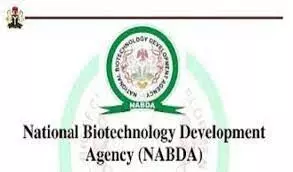- Home
- /
- Agency tasks...

Prof. Nash Oyekanmi, Director, Genomics and Bioinformatics Department, National Biotechnology Development Agency (NABDA), has tasked researchers on the need for genetics improvement of local cattle for increase output. Oyekanmi gave the charge at a two-day Strategic Interest Research Group Meeting on Livestock Genetic Improvement (SIRGM – III) on Friday in Ibadan, Oyo State. Supreme reports […]

Prof. Nash Oyekanmi, Director, Genomics and Bioinformatics Department, National Biotechnology Development Agency (NABDA), has tasked researchers on the need for genetics improvement of local cattle for increase output. Oyekanmi gave the charge at a two-day Strategic Interest Research Group Meeting on Livestock Genetic Improvement (SIRGM – III) on Friday in Ibadan, Oyo State. Supreme reports that the meeting was held at the Conference Hall of the International Institute of Tropical Agriculture (IITA), Ibadan. He said the conference, which was third of its kind, brought together both local and global partners to work around the Dairy Development Centre approved by the Federal Government in Iwo Town, Osun.
Oyekanmi said that NABDA, in collaboration with the researchers, would focus on and follow up the Iwo Dairy Centre project to the end. He said: “This is to ensure that, at least in the next four or five years, Nigerian will have new products (dairy) that we can export. “Also, we will be able to produce for local consumption, thereby reducing import, and at the same time expand employment opportunities in the dairy sector.” On efforts to make the project comes to reality, Oyekanmi said that the agency in Abuja, have some infrastructure on ground. He said: “But, we are expanding the frontier at the Iwo Centre to look for Nigerian farmers to be able to do the work; we have the resources and manpower to take off and expand.“
We have been incrementally adding value to our project. “During our first meeting, we looked at the research that we had done, while we charted out what was the next; we decided that we go into dairy improvement during the second meeting.” The director said that the dairy centre project would coordinate the development of the Nigerian local ‘super cows’. He hinted that genes of some indigenous cows – such as Muturu, that was resistance to some chronic diseases, would be move into bigger cows. Oyekanmi enjoined the researchers to make contributions that would have positive impact on the project at hand.
In his contributions, Prof. Victor Olori, a Genetics expert, said that there was high population of cattle in Sub-Sahara Africa, “yet our beef production from those millions upon millions of cows is very small. “For example, though, we have 21 per cent of the total grazing land in the world, only eight per cent of the world output is the beef output that come out of sub-Sahara Africa.“ That is 0.38 per cent of efficiency output ratio and is very poor compare to United Kingdom where the output ratio is 5.5 per cent. “So, from two per cent of the world grazing land available, UK was able to produce well over 21 per cent of the world output.“ So, we need to increase efficiency of our cattle production per unit cow for the same resource the cow was supposed to produce more – and that is where genetics comes,” Olori said.
He said the Dairy Development Centre would accommodate all processes that would enhance genetics improvement of indigenous cattle. “The resource will facilitate, for example, our ability to collect data from all animals that are performing.“ Because, that is why we allow us to know the variants – the variance means how difference are the different animals performing. “The average milk from Nigerian cows is about one litre per cow; if we look at all the cows, some may be doing five litres, some two litres or more; so, we need to be able to collect data and analyse it. “For such data to be collected and analysed, we need a centre like the centre that is being proposed in Iwo town, Osun State, where we will have personnel and resources that would be able to coordinate the efforts, to record data from all the animals.“ And be able to analysis the data and supply the information back to farmers.
“The Federal Government should ensure that the centre to be set up, is equipped with the needed resources and personnel that would be able to do the job.” The genetics expert also called for Unique Animals Identification System, saying that the system would make every animal in the country to be identified. He said such would “enable us to distinguish the cows that are doing well from the ones that are not. “To facilitate a unique animals identification system, every cow must carry a tag, which will make such cow traceable, thereby solving the problem of cow rustling.“ So, we need policy framework to make it possible and that is even, critical to genetics improvement. ”In separate contributions, Mr Solomon Bamidele, former Director-General of NABDA and John Adekunle, from FrieslandCampina WANCO, called for concerted efforts on the improvement of the indigenous cows. They said there was need to improve on genetics, “work on Nigerian cow breed; improve them to be able to produce 10 to 20 litres of milk per cow”. Adekunle said the economic impact of dairy industry was enormous, raging from employment opportunities to increasing the nation’s GDP.




